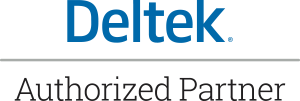Top Features of Monograph Accounting That Every Firm Should Know
Wiki Article
Discovering the Trick Functions of Monograph Bookkeeping for Successful Accountants

Defining Monograph Audit: A Comprehensive Review
Monograph accounting represents a customized method within the broader area of economic reporting. This approach stresses the systematic and thorough paperwork of economic deals and their implications. Unlike standard bookkeeping, Monograph accounting is usually tailored to specific markets or one-of-a-kind situations, supplying a focused structure for evaluation and coverage. It allows accounting professionals to dive deeper right into certain areas, offering a thorough view that lines up very closely with organizational goals.A crucial function of Monograph bookkeeping is its flexibility; it can integrate various audit standards and methods as needed. This versatility enables accounting professionals to generate records that are not just accurate however likewise relevant to stakeholders. In addition, the method typically entails extensive research and exam of financial data, making sure that every facet is extensively understood and documented. Therefore, Monograph accountancy works as an essential tool for accountants intending to offer informative economic evaluations tailored to details contexts.
The Relevance of Clearness and Precision in Financial Reporting

Incorrect or unclear reporting can result in misdirected strategies, deteriorated trust fund among capitalists, and governing examination. Consequently, accountants should prioritize precision in their job, making sure that numbers are carefully verified and financial narratives are systematic. This not only promotes transparency yet likewise enhances the general trustworthiness of the company.
Inevitably, clarity and precision in financial coverage are indispensable for keeping stakeholder self-confidence and promoting lasting company development. Accounting professionals play an important role in maintaining these standards, making their expertise vital in browsing the complexities of economic data.
Streamlining Decision-Making Processes With Monograph Audit
Efficiency in decision-making processes is substantially boosted through the principles of Monograph accountancy. By settling comprehensive monetary information right into a single, systematic framework, accountants can swiftly access crucial info essential for educated choices. This method decreases the moment invested on information access and analysis, enabling a more agile reaction to monetary scenarios.Moreover, Monograph audit stresses clear categorization and thoughtful company of economic purchases, which minimizes errors and miscommunication. When accountants utilize these principles, they can present monetary insights in a structured fashion, facilitating conversations among stakeholders.
In addition, the standardization intrinsic in Monograph accountancy allows seamless comparisons across different durations or departments, further aiding in calculated planning. This structured technique not only optimizes the inner processes of accounting professionals yet additionally improves the overall business agility, empowering businesses to adapt to changing market conditions swiftly.
Trick Benefits for Accountants and Their Customers
While embracing Monograph bookkeeping may call for a preliminary investment of time and sources, the long-lasting advantages for both accountants and their customers are substantial. This audit approach advertises boosted accuracy and openness, enabling accountants to preserve more clear monetary documents. By combining information into a single narrative, customers gain much better insights right into their financial wellness, promoting informed decision-making.Essay accounting fosters stronger client partnerships with enhanced interaction. Accounting professionals can provide monetary information in a more digestible style, making it much easier for customers to comprehend intricate details. This clarity not only builds trust but also encourages aggressive economic monitoring
In addition, the structured procedures related to Monograph accountancy lower the chance of mistakes, which can conserve both time and money. Eventually, the integration of this method results in much more efficient procedures, making it possible for accounting professionals to provide higher top quality solution while equipping clients with enhanced financial understanding and control.
Practical Applications of Monograph Audit in Numerous Industries
In what means can monograph accountancy transform numerous markets? By offering a focused and comprehensive approach to economic reporting, Monograph accounting boosts clearness and precision across diverse fields. In health care, as an example, it facilitates the exact tracking of patient prices and resource appropriation, eventually improving monetary management. The production industry gain from its structured evaluation of production prices, enabling much better pricing approaches and earnings evaluations.In the retail sector, Monograph audit aids in inventory management and sales forecasting, aiding services maximize stock degrees and decrease waste. In addition, in the nonprofit field, it aids in transparent coverage of give funding and source utilization, fostering trust fund among stakeholders. On the whole, Monograph bookkeeping's tailored methods make it possible for organizations to achieve monetary openness and functional efficiency, making it a very useful tool across different sectors. Its adaptability makes sure that services can fulfill specific bookkeeping needs while preserving compliance with guidelines.
Regularly Asked Questions
What Software application Is Ideal for Implementing Monograph Bookkeeping?
The very best software program for applying Monograph audit consists of copyright, Xero, and Sage. These systems provide thorough attributes customized for effective monitoring, reporting, and administration of financial information, promoting structured accounting procedures for professionals.Exactly How Does Monograph Bookkeeping Differ From Typical Accounting Methods?
Monograph accountancy focuses on private projects or clients, emphasizing detailed monitoring and reporting for certain entities, while standard accounting accumulations data throughout all entities, prioritizing general monetary wellness as opposed to project-specific understandings and efficiency.What Are Common Difficulties Accountants Confront With Monograph Accounting?
Accountants typically encounter obstacles with Monograph accounting, including complexity in monetary reporting, integration with existing systems, making certain compliance with regulations, adapting to unique customer demands, and managing the detailed documentation required for exact evaluations.
Monograph
Exist Particular Laws Governing Monograph Accounting Practices?
Yes, certain regulations frequently regulate Monograph audit techniques, including adherence to national bookkeeping criteria, compliance with tax obligation laws, and industry-specific guidelines. Accountants have to remain enlightened to guarantee their methods align with these established frameworks.Exactly How Can Accountants Stay Updated on Monograph Bookkeeping Trends?
Accounting professionals can stay updated on Monograph bookkeeping patterns by signing up for market magazines, going to pertinent workshops and meetings, getting involved in specialist companies, and engaging with online forums devoted to bookkeeping requirements and best methods. (Monograph)Monograph audit offers an unique framework that improves financial reporting for accounting professionals. Unlike typical bookkeeping, Monograph accountancy is commonly customized to one-of-a-kind circumstances or certain markets, supplying a concentrated framework for evaluation and reporting. A vital function of Monograph bookkeeping is its versatility; it can incorporate various accountancy standards and techniques as required. By supplying a concentrated and extensive technique to economic reporting, Monograph bookkeeping improves quality and precision across varied fields. Yes, details policies often regulate Monograph bookkeeping techniques, including adherence to nationwide accountancy criteria, conformity with tax obligation laws, and industry-specific guidelines.
Report this wiki page